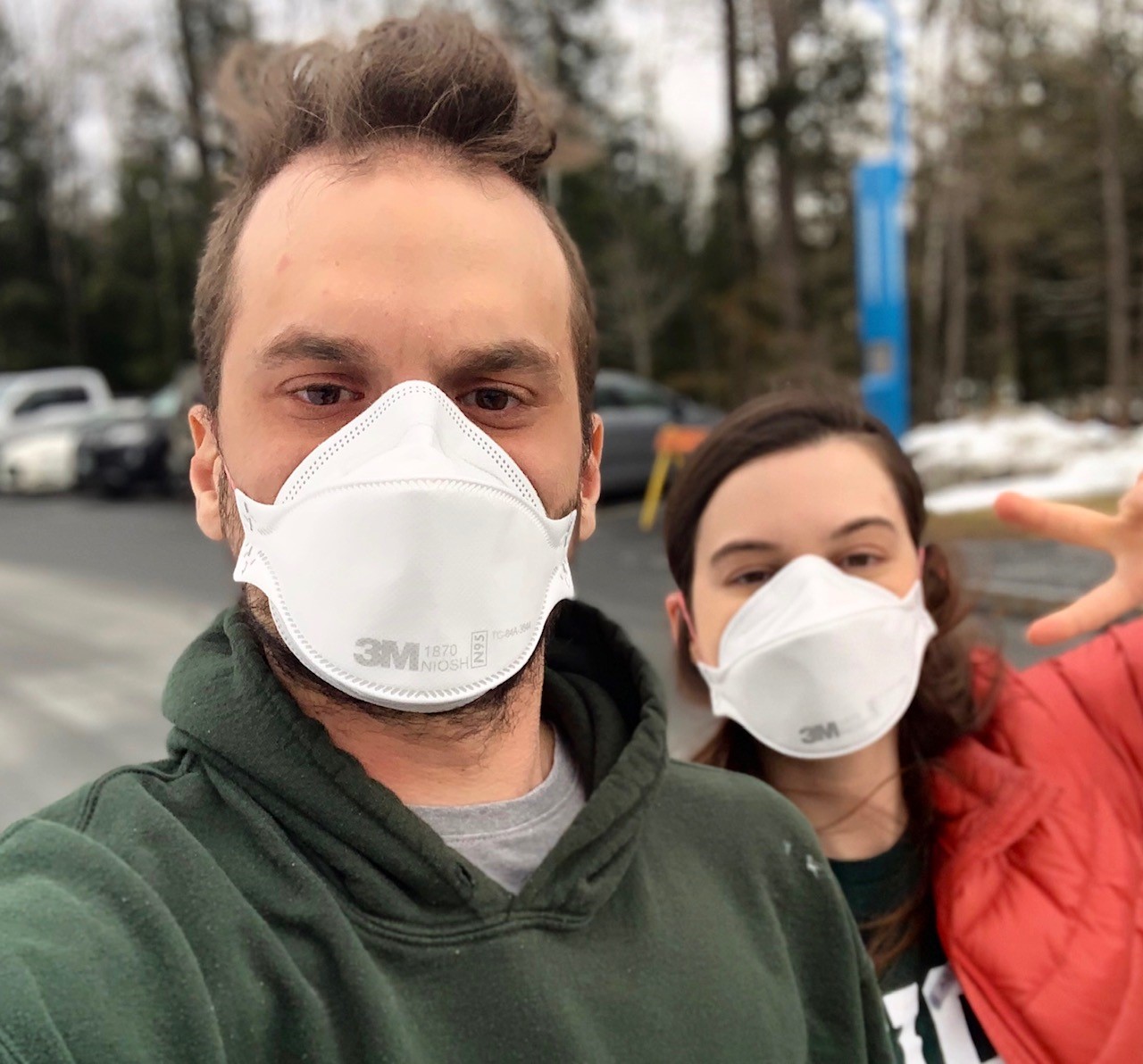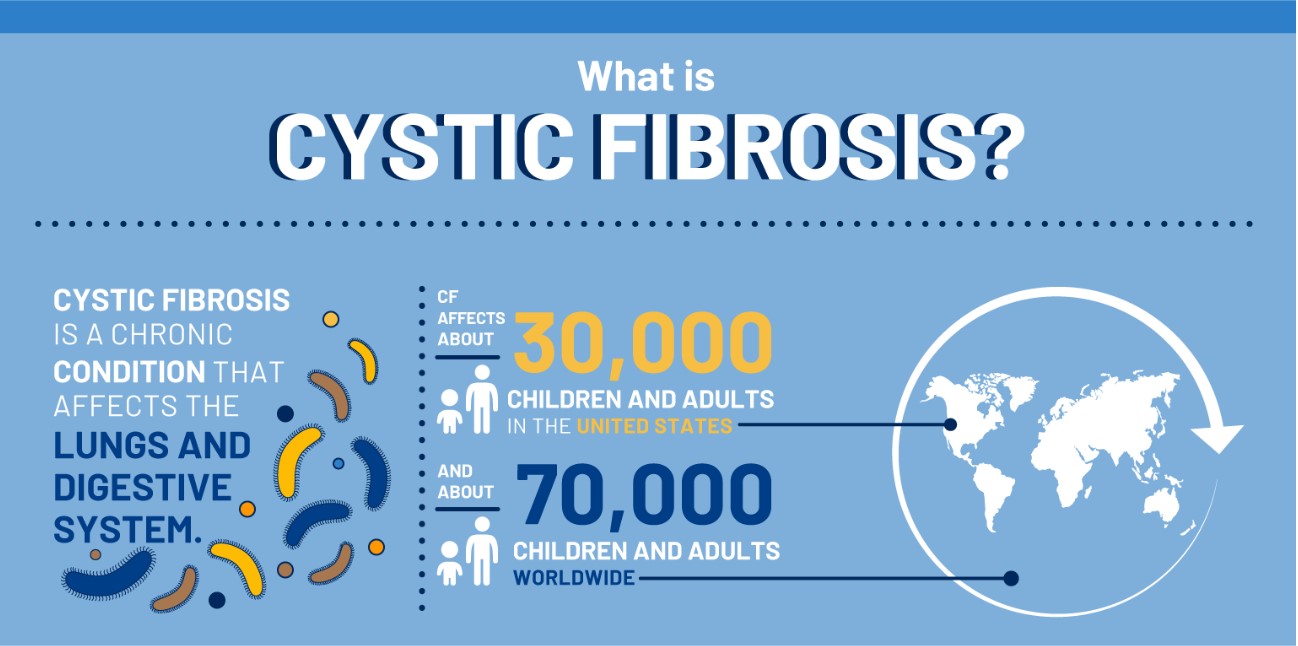Yesterday was my first time INSIDE a CF clinic since February. The experience felt a bit surreal. At no point in my life did I ever think I would go without a visit to a CF clinic for more than half a year – especially considering the rate of my visits in my early twenties. I have, of course, kept up with two telemedicine visits, but the routine of going to a CF center has been entrenched in my being. Prior to yesterday it had felt like I had been missing something that is so intertwined with my identity. I wouldn’t say it was great to be back inside a hospital, but it certainly felt like I was taking a few steps back towards normal. With that, I figured I would share my tips for a productive clinic visit!
- Plan your visit
I like to know what I want to talk about and what kind of information I want to solicit from my team if I know I am in relatively good health. Since Darcy and I got engaged last winter, recently a lot of my questions have been about fertility, and the IVF process. Darcy wrote a blog about all that a few months ago, but we’ve noticed a severe lack of resources from a cystic fibrosis perspective, so guiding conversations inside the clinic around fertility has been valuable for us. I think if I was in poor health, my preparations wouldn’t be quite as happy a process as it is trying to family plan, but still important nonetheless. I think back to a few years ago when I would talk specifically about steroid doses and antibiotic cocktails. Those conversations feel a bit like a distant memory. - Control the blood draw
I am still a baby about needles, so I like to ask for the smallest gauge possible when I’m sitting in the phlebotomist’s chair. It blew my mind when I realized I had the liberty to ask. - Don’t shy away from more PFT attempts
I know my body, and my body tells me that 3 PFT attempts is not the optimal amount to get the best out of my airways. I usually ask for 4-6 based on how I’m feeling. I see PFTs as some good airway clearance. Why pass up a free shot at getting all that crap out of my lungs? - Speaking of free, scrutinize your bill
Billing inside hospitals has got to be one of the dumbest things going right now. Between the rise in the “surprise” bill and over or under-utilizing healthcare resources, make sure to note exactly what you have done inside the clinic, why you did it, and who ordered it. The best tactic to use against one of those surprise bills is to make sure you are completely informed about what happened inside a medical center and why. - Know why you’re at the clinic
Are you there for a check-up? Is it an emergency? Is it not quite an emergency, but unplanned? I like to have a goals in mind when I’m at the clinic (see point #1), but I’m also the kind of person who doesn’t like to spend an unnecessary amount of time inside the clinic. In and out is the best strategy for me, especially when I’m there to achieve a specific task (yesterday was to get a PFT and lab work done). Knowing exactly why I am in the clinic helps me better manage my expectations – I know what I am going to learn about my health during that visit – and it also helps me mitigate the risk of over utilizing healthcare resources (which is a small pet peeve of mine). - Do not be afraid to solve a discrepancy
If there is a disagreement about something, become a problem solver. Do not be a passive bystander. Yesterday there was some question around my producing a sputum sample for culture. Was I going to cough enough during my PFT to produce a sample or would I get a throat culture? Obviously, it was a small, small thing compared to some other disagreements I’ve had to go through, but nonetheless it was a chance to have my voice heard. Under no circumstance (unless I have strep throat) am I letting someone put a stick in my mouth to swab the back of my throat when I can easily cough something up. I asked for a cup, produced a sample, and then wam bam thank you mam, problem solved. I have also had to speak up in the past to stave off unnecessary testing, incorrect injections and questions around medication. You are the last line of defense against a medical error, your voice matters. - To a similar tune, if you’re uncomfortable about something, ask why you’re in that situation
The healthcare system views patients as passive benefactors of modern medicine. That’s no secret, but I say to hell with that paternalistic garbage. If you feel like you’re stepping into the mud or into a bad situation – maybe the NP has ordered up some strange test you’ve never done or maybe you’re about to relieve a terrible experience with the respiratory therapist – hit the pause button and ask why the hell you’re being put through that exam or test. A few years back a nurse came at me with a Heparin injection and I all but took that syringe and tossed it out the window. No chance I was getting that jab when I have a history of hemoptysis. - If you have seen a recent publication or have questions about a study, ask!
This one is important. Reading medical literature, while intimidating, is not hard. You can do it. It’s also important you know the very fine line between reading someone’s thoughts about a study (on Facebook, on a blog, in an article) and actually reading the publication. This, for example, is my opinion. Your very favorite CF Facebook group is a collection of opinions. Opinions are important, but they risk misrepresentation. I know I have misinterpreted study findings just like I have wrongly assumed someone else’s misrepresentation of study results was the truth. It happens. I’ve also had great discussions with other patients and families about findings from studies. I think (opinion) it’s one of the best ways to learn about CF and the science behind our lives. To that tune, if you come across something interesting, bring it up! Odds are your CF doctor has talked about it in a journal club or would be willing to pull the study and share his or her thoughts about it. I think one of the nice things about reading publications is that they help me inform my decision-making process. I don’t always anticipate (nor do I practice) immediate changes based on study findings, but they work their way into my decision trees. - Know the difference between short-term and long-term treatment adjustments
At your visit, are you anticipating a short-term treatment adjustment or are you going to begin chronic care for some long-lasting issue? The difference is important and can help stave off any confusion you may have when it comes to the end of a treatment cycle. I am completely anal (and terrified) of antibiotic resistance, so with the help of Trikfata I have been trying to scale back antibiotic use whenever possible. I am in the middle of a short-term change with my inhaled antibiotic routine that I hope to be a lasting change one day. That then begs the question, what is short-term vs long-term? I think long-term is something that persists beyond two visits, or more specifically, 6-months, but those definitions are up for your individual interpretation. - Come to a consensus on what needs to be done before your next visit
Are you totally healthy and in need of no change? Make sure everyone is on board with that. Are you going to try out something new (see short-term change above) to see if your health will trend in a different way? Don’t hide it from the doctor. Use those plans to inform what the next visit may look like. It is okay to forecast where you think your health will go after making a few changes. What better way to do that than to make a plan, use data to back up your position, and then live it? On the other side of things, I have always been the kind of person who tries to stave off IV’s if at all possible, so I will come up with an action plan with my doctor, one that requires me to check in with myself daily, and then act on getting more help if I trip a health threshold (cough getting worse, appetite fading, etc.). Making sure there are no surprises for the care team to manage can go a long way for helping the next clinic visit run smoothly.





